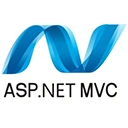ASP.NET MVC is a powerful framework for building web applications, and it offers several advantages over traditional web development approaches. Below are some of the key benefits of using ASP.NET MVC:
1. Separation of Concerns
ASP.NET MVC promotes a clear separation of concerns by dividing the application into three main components: Model, View, and Controller. This separation makes it easier to manage and maintain the application, as each component can be developed and tested independently.
2. Testability
The architecture of ASP.NET MVC is designed to support unit testing. Since the components are loosely coupled, developers can easily write tests for controllers and models without the need for a user interface. This leads to more reliable and maintainable code.
public class HomeController : Controller
{
public ActionResult Index()
{
return View();
}
}
3. Full Control Over HTML
ASP.NET MVC gives developers complete control over the generated HTML. This allows for the creation of clean, semantic markup that is beneficial for search engine optimization (SEO) and responsive design. Developers can use HTML helpers or write custom HTML as needed.
@model IEnumerable<Product>
<h2>Product List</h2>
<ul>
@foreach (var product in Model)
{
<li>@product.Name - @product.Price</li>
}
</ul>
4. Routing Flexibility
ASP.NET MVC uses a powerful routing engine that allows developers to define custom URL patterns. This flexibility enables the creation of clean and user-friendly URLs, which can improve the user experience and SEO.
public class RouteConfig
{
public static void RegisterRoutes(RouteCollection routes)
{
routes.IgnoreRoute("{resource}.axd/{*pathInfo}");
routes.MapRoute(
name: "Default",
url: "{controller}/{action}/{id}",
defaults: new { controller = "Home", action = "Index", id = UrlParameter.Optional }
);
}
}
5. Support for Asynchronous Programming
ASP.NET MVC supports asynchronous programming, allowing developers to build applications that can handle multiple requests simultaneously. This is particularly useful for improving the performance of web applications that involve I/O-bound operations, such as database calls or web service requests.
public async Task<ActionResult> GetData()
{
var data = await _dataService.GetDataAsync();
return View(data);
}
6. Built-in Support for Dependency Injection
ASP.NET MVC has built-in support for dependency injection, which allows developers to create more modular and testable applications. By using dependency injection, components can be easily swapped out or mocked during testing.
public class HomeController : Controller
{
private readonly IProductService _productService;
public HomeController(IProductService productService)
{
_productService = productService;
}
public ActionResult Index()
{
var products = _productService.GetAllProducts();
return View(products);
}
}
7. Rich Ecosystem and Community Support
ASP.NET MVC is part of the larger ASP.NET ecosystem, which includes a wide range of libraries, tools, and frameworks. Additionally, it has a strong community that contributes to its development and provides support through forums, blogs, and tutorials.
Conclusion
In conclusion, ASP.NET MVC offers numerous advantages for web application development, including separation of concerns, testability, full control over HTML, flexible routing, support for asynchronous programming, dependency injection, and a rich ecosystem. These features make it a preferred choice for many developers looking to build modern web applications.

